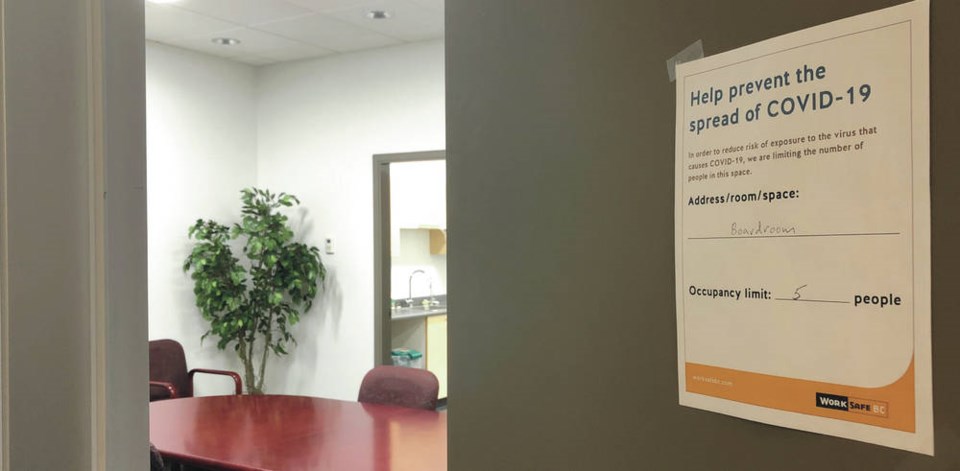As we enter the second wave of COVID-19, I’ve been thinking about how different the experience was when the first wave began.
Back in March, I was reading the guidelines from WorkSafe B.C. and drafting policies to ensure my workplace was in compliance and safe. This was a big change for everyone and many others were doing the same.
Public-health information on the pandemic has evolved as more research has come available. As we buckle down for the second wave, I wondered if WorkSafe B.C. guidelines have changed, too.
Al Johnson, head of prevention services at WorkSafe B.C., said while general information has not changed, there have been some changes in procedures in areas such as restaurants and schools. They include safety protocols in classrooms and temporary Plexiglas being replaced with permanent physical barriers in restaurants. In schools, these changes have included partnerships between the Ministry of Education and the teachers’ union.
Johnson explained that all guidelines stem from public-health recommendations, and primarily focus on physical distancing, hygiene and cleanliness.
This is nothing new for all of us who have been living this “new normal” for months. We all know that COVID-19 is in our community and we want to be safe, but complacency can occur.
“It’s tiring to keep your guard up all the time,” said Johnson, who suggested employers can have pre-work talks in the morning about how tough it is to maintain distance and follow the guidelines. “Let the team know we need to share the responsibility and stick to the plan.”
Johnson said the best way to protect a workplace from complacency is to review and update policies, include staff in these updates and allow feedback, and have an active health and safety committee.
Johnson really got me thinking.
If a workplace has more than 20 employees, it is required to have a health and safety committee that meets regularly.
The committee works with the management and represents the employees, said Johnson. As a body, it recommends improvements to the employer.
The health and safety committee can review COVID-19 policies, speak with staff and make recommendations to management following WorkSafe B.C. guidelines. This is a great way for employees to be part of the process and to gain more understanding of the big picture.
I’ve spoken with people from a variety of workplaces who often compare how their workplaces are operating under pandemic restrictions. Some have staff kitchens that are open, while others are closed. Some places allow three people in an elevator at a time, while others allow only one.
Johnson said these are issues where individual workplaces conduct a risk assessment regarding the space and the ability to physically distance and maintain cleanliness. If people have questions or want a change made, they can refer it to the health and safety committee to review and take it to management.
Johnson said changing some policies can benefit some staff, but make others feel less safe. It’s a tricky situation and one that should be addressed with caution.
charla@makola.bc.ca
Charla Huber is director of communications and Indigenous relations for M’akola Housing Society.



